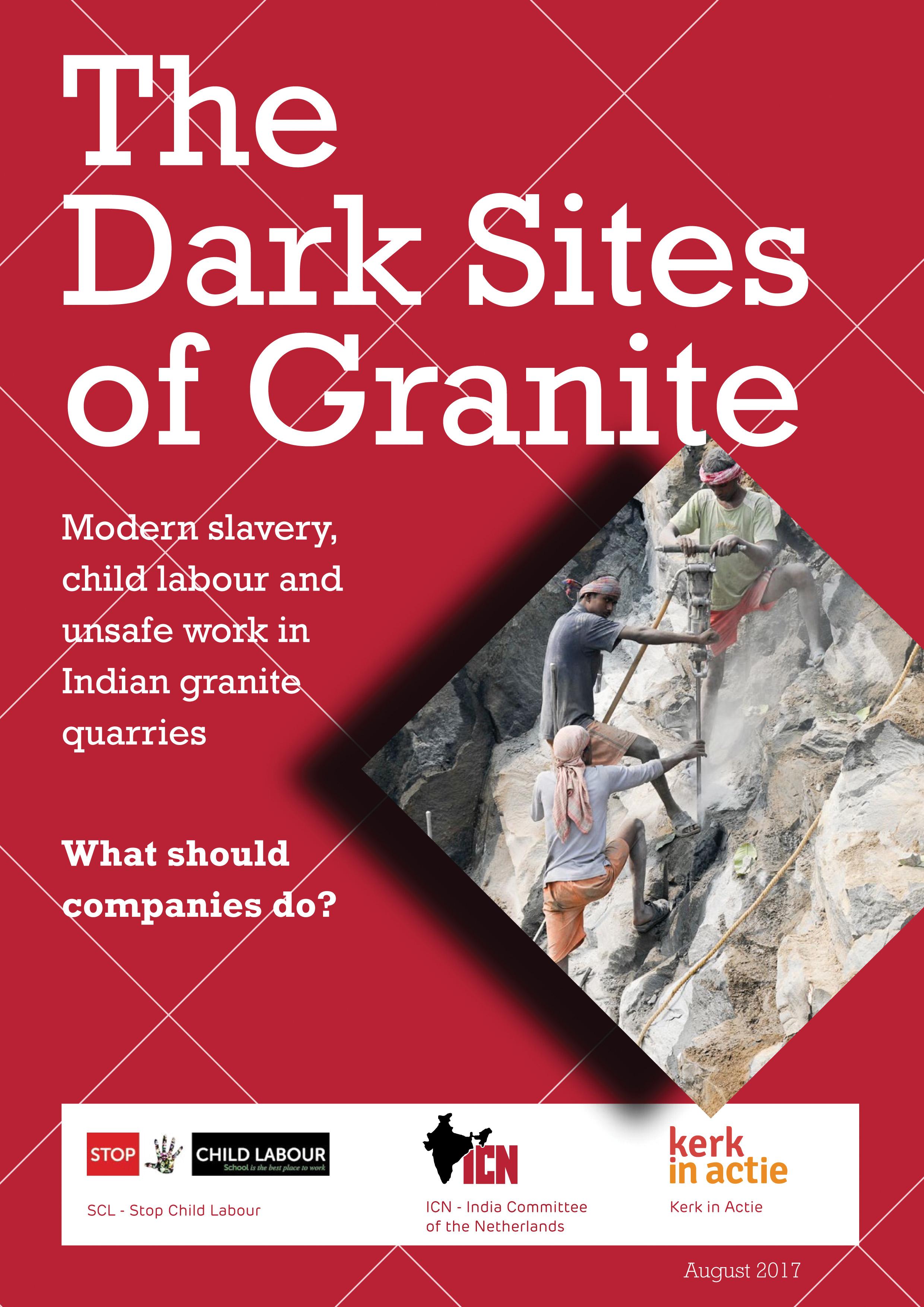UK stone wholesalers named as buyers of Indian granite from quarries with slavery
British stone wholesalers are among companies from around the world named in a report from the Netherlands as buyers of granite from quarries in India where modern slavery, child labour and unsafe working conditions have been found.
Before being published, a draft of the report, called The Dark Sites of Granite, was sent to the companies mentioned and other interested parties. Stone Federation Great Britain was sent a copy. It is currently compiling an Ethical Stone Register for the benefit of its members.
Most of those sent the draft did not respond. Beltrami, with its associated Stoneasy business that enables stone companies in Europe to buy directly from quarries outside Europe, did. Its comments are included in the report.
Beltrami and Stoneasy have done more than most stone companies to identify and tackle modern slavery in their supply chains.
They were part of the UK’s Ethical Trading Initiative (ETI) but in 2011 left to join the Responsible Stone Program of The Forest Trust (TFT) because they thought the TFT efforts to tackle labour abuses in India were particularly robust.
In areas of sandstone quarrying in India, Beltrami and Stoneasy, in conjunction with fellow TFT member London Stone, which supplies hard landscaping, have collaborated with the non-governmental organisations (NGOs) Manjari, ICN and Stop Child Labour to create ‘Child Labour Free Zones’ and ensure children go to school rather than work in the quarries.
In its response to the report, Beltrami states that in spite of its campaigning and sensitisation efforts towards its Indian suppliers, there is still a lot to be done to improve conditions in Indian quarries.
It says gaining insight into supply chains at the level of quarries is challenging because suppliers are reluctant to provide information about which quarries they obtain their stone from.
The publication of the report was covered in the press in India, including The Times of India, as well as in the UK and Europe, and Indian stone companies and producers there have taken it seriously.
Bram Callewier is a Director of Beltrami and Stoneasy, which, like the NGOs that published The Dark Sites of Granite, are headquartered in the Netherlands. He told NSS that Beltrami has now contacted its primary suppliers of granite in India saying it wants full transparency about the sources of their stone.
“We have said if there’s no transparency there will be no more orders,” says Bram. “This report has changed things. All our suppliers have come back to us and said they agree it’s a problem.”
He says granite sales were already being hit by the growth of man-made quartz, porcelain and superdense products. “They [Indian suppliers] understand that if the product is getting a bad name it will only make things worse for them.”
He hoped to work with colleagues in the stone industry in the UK and across Europe to improve working conditions in India. “We should all say no, we can’t accept these conditions. Unless all importers say the same thing nothing is going to happen. You really hope this report is a wake-up call.”
Leading retailers withdraw Indian granite worktops
Following the publication of The Dark Sites of Granite, retailers John Lewis and Habitat stopped selling worktops containing Indian granite. John Lewis has since started selling them again.
John Lewis told NSS: “We welcomed the report last month by the India Committee of the Netherlands (ICN) as a means of raising awareness of the issues related to granite quarrying in India. Our decision to remove Star Galaxy granite from sale was a precautionary measure while we carried out further investigations into our supply chain.
“Having conducted an investigation and carried out due diligence checks with full
co-operation from our UK supplier, we are assured that there is no evidence to suggest there are issues with the quarry from which we source our Star Galaxy granite and it is therefore back on sale.”
Habitat’s worktops were from German kitchen company Kutchenhaus, which operates a fitted kitchen concession business in two of Habitat’s London stores.
Habitat told NSS: “Kutchenhaus has withdrawn the granite in question.
“We’re supporting Kutchenhaus with a full independent audit of its supply chain to ensure it meets our high welfare standards.
“We take the issues raised in the report extremely seriously and continue conversations with our supplier and the Ethical Trading Initiative to see how we can work more collaboratively to help deliver change in the industry.”

